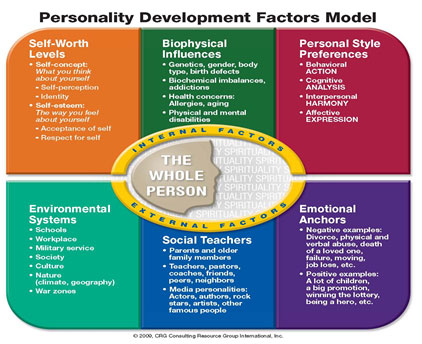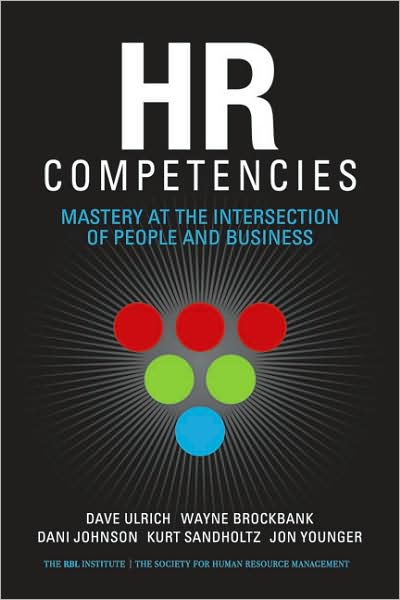One of the critical parts of our work in HR and OD is staying on top of the 'new'. New and successful ideas, innovations, constructs and applications that we need to find, and selectively approach our clients with, in terms of the value-add we must provide. Although the internet provides great options for the 'quick and dirty' needs that we get on a day to day basis, I have always found that well written books are better in that I generally save reading for times that I am uninterrupted by calls, emails or 911 requests. By not being distracted, the focus I can give a book really helps me absorb and retain the material which transitions into how I change what I do day to day. Here are 3 recent reads that I am loving right now:
For those of you like myself who love data driven research,
Dave Ulrich and his team of co-authors do an excellent job at breaking down the key behaviors and actions for HR professional. This work came out in 2008 and is aptly titled:
HR Competencies. His term "Credible Advocate" is slowly but surely replacing the traditional term "
Trusted Advisor" that we have heard for decades now. I have mocked up a
Coles Notes review but the book is a fantastic read and has wonderful data metric evaluations that the nerd in me loves as well. This is one of the few times I've seen this extensive amount of quantifiable evidence (surveys with regression strength analysis) support an HR concept.
I love
Dorling Kindersley (DK) press. They are the masters at adding easy to follow graphics and pictures to their material that works for both the HR and OD professional yet also for the managers we are helping develop. This handbook,
Coaching Successfully, is actually targeted towards managers, but I have used it to help with both group training and one on one developmental sessions as a great resource. It works very well due to its small size, inviting layout and it's very easy to absorb, step by step processes. One that managers find especially helpful when dealing with this so called 'fuzzy' subject. Under the chapter 'Why Coach?' are excellent materials to help influence and persuade those resistant to the subject matter about its value to both the company, and to their own development as leaders.
The previous material on coaching is great for the beginner or intermediate manager. However, what about the big hitters? The top ranked company officers, leaders and high performers/potentials who get the basics, but really need a more progressive resource tailored for the advanced company contributor. This where the highly influential, experienced and knowledgeable
Marshall Goldsmith comes in. His book,
What Got You Here Won't Get You There is a goldmine for those of us looking for a credible approach to help gear the developmental plans for this highly demanding and action oriented client base. Much like Coaching Successfully, he structures his process in very easy to understand sections chronologically. The big difference is that he targets his readership as university educated and uses business and psychological concepts that provide a more advanced and thorough platform for the reader. The material advances through self investigation, new modes of thinking and dealing with day to day issues, teamwork/coaching and long term strategic focus. This is a bit of an evolution from
Daniel Goleman's Emotional Intelligence but really targets people who know success and know it very well. 'Where do I go from here?' is the question, and this material gives us great insight in how to help them help themselves.
 There are a huge amount of developmental options for employers to choose from and in order to be cost effective our organizations are constantly looking to fine tune selections to hit the broadest audience possible in terms of applicable programs. The most cost effective approach to employe development is having standardized processes, access options and alignment to organizational and personal goals. However, given the growing demographic changes to our working populations, our clients need to also recognize how this change impacts the effectiveness of our current development systems.
There are a huge amount of developmental options for employers to choose from and in order to be cost effective our organizations are constantly looking to fine tune selections to hit the broadest audience possible in terms of applicable programs. The most cost effective approach to employe development is having standardized processes, access options and alignment to organizational and personal goals. However, given the growing demographic changes to our working populations, our clients need to also recognize how this change impacts the effectiveness of our current development systems.







